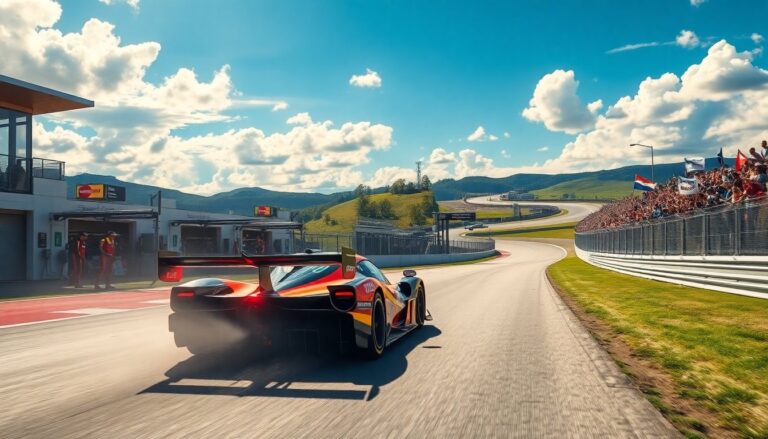Argomenti trattati
The world of motor sport has experienced remarkable transformations since its inception. This exhilarating sport captivates millions, merging speed, technology, and skill into a spectacle that attracts fans from diverse backgrounds. From the early days of informal races on dirt paths to the highly technical and regulated events of today, the evolution of motor sport showcases human ingenuity and the relentless pursuit of excellence.
The origins of motor sport
Motor sport has its roots in the late 19th century, when the first automobile races were organized. These early competitions focused less on speed and more on demonstrating the reliability of the automobiles emerging from the industrial revolution. The Paris-Rouen race in 1894 is often recognized as the first true motor sport event, where vehicles were evaluated based on their speed and mechanical performance.
The dawn of organized racing
As the 20th century progressed, the necessity for organization in motor racing became increasingly clear. This realization led to the formation of racing clubs and federations, with the Automobile Club de France playing a pivotal role in formalizing racing events. The inaugural French Grand Prix, held in 1906, represented a significant milestone in motor sport history, introducing a structured format and a competitive ethos that would characterize the sport for many years.
With the emergence of organized racing, automobile manufacturers recognized the benefits of competition as a platform to demonstrate their engineering capabilities. Brands such as Mercedes-Benz and Ferrari emerged as dominant forces, using their track successes to bolster their reputations and stimulate sales. This development marked the onset of intense rivalries, which would become a defining feature of motor sport.
The golden age of motor sport
The post-war era is widely recognized as the golden age of motor sport. The launch of the Formula One world championship in 1950 significantly propelled the development of professional racing, drawing global attention and investment. This period was characterized by iconic drivers such as Juan Manuel Fangio and Ayrton Senna, whose remarkable achievements on the track captivated fans around the world.
Technological advancements and safety measures
The evolution of motorsport has been paralleled by significant technological innovations. Advances in engineering and aerodynamics have transformed racing cars into high-performance machines. The development of tire compounds and enhancements in suspension systems have provided drivers with superior control and speed during competitions. Nevertheless, the increase in speed has underscored the critical need for improved safety measures.
Several tragic accidents during the 1960s and 1970s served as catalysts for substantial reforms in safety regulations. The creation of the Fédération Internationale de l’Automobile (FIA) led to the enforcement of rigorous safety standards. Key measures included the introduction of crumple zones, fireproof suits, and the redesign of race tracks. These initiatives have significantly contributed to saving lives while enhancing the overall experience for both drivers and spectators.
The modern era of motor sport
Motor sport has evolved into a billion-dollar industry that includes a variety of formats, such as Formula One, NASCAR, and rally racing. Technological advancements have significantly transformed the field, with data analytics and simulation tools playing a crucial role in race strategy and car development. Teams now employ data scientists to analyze performance metrics, enabling them to optimize every aspect of their vehicles and strategies on the track.
Environmental concerns and the future
Looking ahead, motor sport faces significant challenges, particularly regarding environmental sustainability. The emergence of electric vehicles has given rise to the Formula E championship, which demonstrates how motor sport can adapt to contemporary demands. Manufacturers are making substantial investments in hybrid technologies, aiming to strike a balance between high performance and environmental responsibility.
The evolution of fan engagement in motor sport
The global pandemic has significantly transformed how fans interact with motor sport. Virtual racing has surged in popularity, offering fans a unique platform to connect with their favorite drivers and teams from the comfort of their homes. As the world moves towards a post-pandemic reality, the roles of technology and sustainability will be crucial in shaping the future landscape of motor sport.
Looking ahead: innovation and sustainability
The evolution of motor sport, from its modest origins to its current status as a global phenomenon, showcases the essence of innovation and competition. Advances in technology, coupled with an increasing emphasis on sustainability, suggest that the future of motor sport will be as exhilarating as its rich history.

